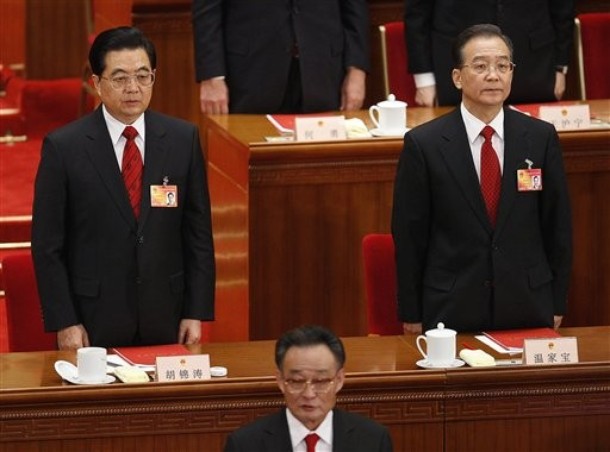China is behaving as realists would predict. What's the problem?

Daniel Blumenthal has a good post up on Foreign Policy on what's behind the seeming shift in elite Western opinion regarding China. He then writes:
All of these pieces were published during a time of demonstrably heightened Sino-American tension. But unlike past periods of Sino-American tension, when opinion-makers blamed America as much as China for bad relations, all of these writers put the blame for tense relations squarely at China's feet. They just disagree on whether China's arrogance is based on strength or weakness. Perhaps it took the departure of Bush-Cheney, so unpopular with elites, for these writers to begin to see China for what the American people know it to be: a growing threat to the United States.So the answer to the first question is that for a variety of reasons -- including the end of the Bush presidency, the financial crisis, and aggressive Chinese behavior -- there seems to be a trend in elite opinion towards viewing China as a problem.
But what about the second question? Why is China a problem?
I think there's an even more important question: what is the nature of the "China problem?"
Right now, China's behavior is troublesome but in a fairly non-ideological manner: they're trying to maximize their advantage, sometimes at our expense. This is felt most acutely in the economic realm, which is why many liberals (like Paul Krugman) are crying foul. In the military/security realm there's concern about China's military build-up, but mostly in the context of how that impacts America's heretofore unfettered freedom of access, not in the context of an imminent campaign of armed conquest throughout Asia.
In other words, China is behaving how many realists would expect a powerful state to behave. This doesn't preclude conflict (obviously it potentially heightens the chances of conflict) but it does present something of a rub for the United States, especially for our politicians and our foreign policy punditry. We love ideological enemies. Revolutionary regimes - be they in Moscow or Tehran - excite us in a way that grubby, material-interest seeking states do not. This, I think, explains the rather flaccid attempts to date to dress up China's fusion of authoritarianism and capitalism into some kind of looming ideological challenge to the U.S. Otherwise, China's deal cutting with third world tyrants, its military investments, its economic agenda, just doesn't pack that dramatic punch.
The U.S. itself takes a fairly ideological view toward foreign policy, if only rhetorically and inconsistently. The same officials who cannot balance a budget will frequently proclaim that they have unlocked God-given and universal truths about how humanity should order its affairs and - in the heights of excess - affirm that we have a positive obligation to further the Lord's work on Earth.
Obviously, there's very little room in such a worldview for another country to make similarly sweeping claims and China, to the extent that I am aware, has not (and if they're smart, they'll continue to stay mum). This complicates U.S. strategy, at least at the thematic level. When you strip away the rhetoric, the U.S. is no stranger to realpolitik - and that's not a bad thing! But crying "no fair" when China scoops up a good resource deal from a third world tyranny is not as morally edifying as decrying the advance of Evil Empire 2.0.
(AP Photo)











